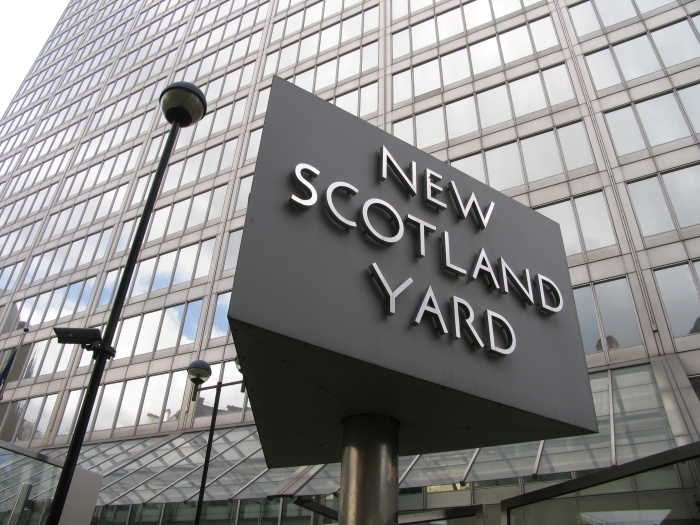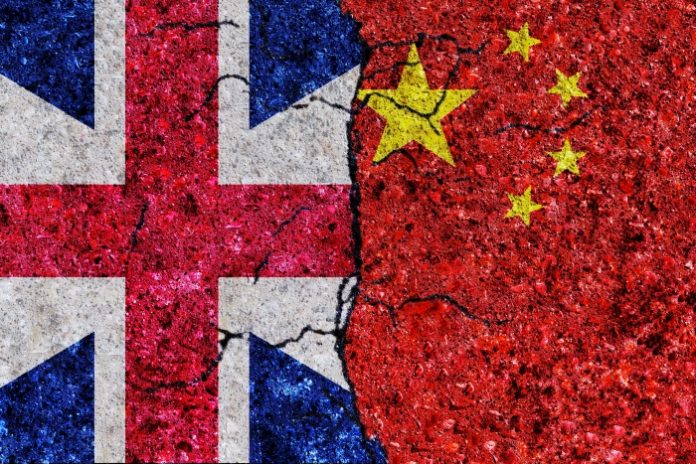A British parliamentary researcher has been arrested on suspicion of spying for China in what is alleged to be one of the most damaging breaches of security involving a hostile state at Westminster.
The male suspect, who is in his late twenties, is understood to be linked to a number of senior Tory MPs, including several who are privy to classified or highly sensitive information.
They include Tom Tugendhat, the security minister, and Alicia Kearns, the chairwoman of the Commons foreign affairs committee.
A senior Whitehall source claimed: “This is a major escalation by China. We have never seen anything like this before.”
Rishi Sunak brought up the issue when he met Li Qiang, the prime minister of China, at the G20 summit this morning.
A No 10 spokesman said that the prime minister “conveyed his significant concerns about Chinese interference in the UK’s parliamentary democracy”.
Counterterrorism police arrested the researcher and another man in his thirties on suspicion of espionage-related offences in March.
The researcher is a Briton who held a parliamentary pass and has worked with MPs on international policy, including relations with Beijing, for several years.
He previously spent time living and working in China, where security officials fear he may have been recruited as a sleeper agent and sent back to Britain with the intention of infiltrating political networks critical of the Beijing regime.
The researcher was arrested in Edinburgh and his London flat is thought to have been searched by police. The second suspect was arrested in Oxfordshire.

Scotland Yard said in a statement: “Officers from the Metropolitan Police arrested two men on March 13 on suspicion of offences under section one of the Official Secrets Act 1911.
“A man in his thirties was arrested at an address in Oxfordshire and a man in his twenties was arrested at an address in Edinburgh. Searches were also carried out at both the residential properties, as well as at a third address in east London. Both men were taken to a south London police station and were released on police bail until a date in early October.”
The statement said inquiries were continuing by officers from the Met’s counterterrorism command, which has responsibility for espionage-related offences.
Section one of the Official Secrets Act relates to the passing of information that may be “prejudicial to the safety or interests of the state” and communications which are “calculated to be or . . . intended to be directly or indirectly useful to an enemy”.
The revelation comes less than a fortnight after James Cleverly, the foreign secretary, became the most senior British minister to visit Beijing since before the pandemic, prompting a backlash from Conservative MPs.
The alleged infiltration of parliament by a British citizen has prompted widespread alarm at Westminster and follows warnings by Ken McCallum, the head of MI5, that the Chinese Communist Party poses “the most game-changing strategic challenge” to the UK.

In July the Commons intelligence and security committee published a report claiming that China is targeting the UK “prolifically and aggressively”, but that government departments did not have the “resources, expertise or knowledge” to tackle the threat.
The committee, which is made up of a powerful group of cross-party MPs, said Beijing had managed to “successfully penetrate every sector of the UK’s economy”.
Last year the security services took the unprecedented step of issuing an alert to MPs naming Christine Lee, an Anglo-Chinese lawyer, as an agent of influence carrying out “political interference activities on behalf of the Chinese Communist Party”. Lee, 59, who denies wrongdoing and is suing MI5, had donated almost £500,000 to Barry Gardiner, Labour’s former shadow international trade secretary. Lee’s son also worked in Gardiner’s office.
Tugendhat is said to have only had limited contact with the arrested researcher, who was hired by someone else, and severed contact with him when he began running for the Conservative Party leadership in July last year. He therefore had no dealings with the suspect as security minister.
Luke de Pulford, of the Inter-Parliamentary Alliance on China (IPAC), said: “It’s no surprise that he’d go after Tom. He’s been out front on China for years. In IPAC we have long suspected that something was badly wrong because there were consistent efforts from a hostile researcher to smear IPAC MPs and label them as extreme on China policy. Now it all makes sense.”
A Whitehall source added: “I’m pretty sure he [the researcher] turned some backbenchers from China hawks into being apathetic about Beijing.
“He was regularly complaining about a lack of nuance among China-sceptic MPs and seemed to have a particular issue with Iain Duncan Smith.”
Paddy McGuinness, the government’s former deputy national security adviser, described China’s alleged actions as both “reckless” and a “serious escalation” of espionage activities. He said: “The mask has truly slipped. This isn’t about China objecting to interference in their internal affairs as they so often claim. Rather they are messing in ours, with a casual disregard for our democracy and our sovereignty.”
McGuinness, who advised the government between 2014 and 2018, said that the Chinese state had long sought insight and influence at Westminster through “notionally commercial lobbying, through people attending parliamentary events at its direction or through cyber and disinformation”.
He said this looked to be “a more aggressive and hard-to-detect” approach, “allegedly recruiting British staff to report on and possibly shape the work of political parties”.
But he said it could prove to be a “serious miscalculation” by Chinese intelligence, resulting in a hardening of the British attitude to China. “This won’t be a one-off but part of a wider strategy and there may be others to find,” he said.
He added: “Many in Beijing will be angry at how disproportionate the operation is given the UK’s openness to China. Others will object to the fact of being caught,” he added.
Benedict Rogers, the founder of Hong Kong Watch, based in the UK, said he had personal experience of threats and attacks by Chinese agents over the past six years. “We cannot afford to be complacent about the threat that the regime in Beijing poses to our democratic way of life,” he said. “The government must act robustly and urgently.”
Liz Truss, the former prime minister, wants Britain to designate China as a “threat” but Rishi Sunak’s government is adopting a softer approach. Cleverly has previously said he would not conduct foreign policy by “catchphrase” and that disengaging from China would not be “credible”.
Downing Street said it did not comment on security matters. The parliamentary authorities and the Home Office were approached but declined to comment.
(Source: The Times)










